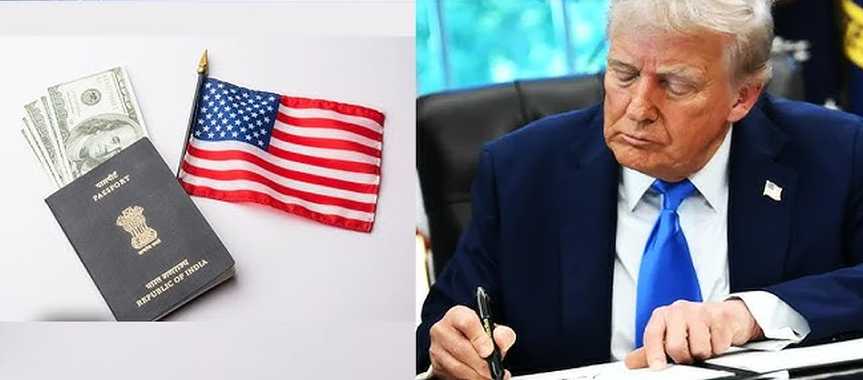Trump’s $100K H-1B visa fee could cripple startup hiring, founders and VCs warn

On September 19, the Trump administration announced a sweeping overhaul of the high-skill visa (H-1B) program. At the center is a proposed $100,000 annual fee, a change that immediately set off alarms among immigration lawyers, multinational companies, and visa holders across the globe.
Now, U.S. startups are bracing for yet another hurdle in the fight for talent. Founders and investors warn that the plan could freeze hiring and push top engineers and specialists to friendlier markets overseas.
For many early-stage companies, the H-1B visa is already a long shot. Limited quotas mean thousands of skilled workers in engineering, IT, and healthcare are locked out each year. But the proposed six-figure filing fee, revealed last week, would turn a difficult process into an impossible one for startups running on tight budgets.
Desmond Lim, co-founder and CEO of HR and hiring platform Workstream, knows the struggle firsthand. Last year, every H-1B application his company submitted was denied. The year before, he managed to secure a few spots — hires he called “life changing, both for the employees and for the company.” He now worries the new fee will make the program out of reach.
“As an early-stage startup, every hire is precious, and we only choose the best to go through the H-1B program, because it not only costs money, but also takes time,” Lim told CNBC.
$100K H-1B Visa Fee: Startups Brace for Talent Shortage as Investors Warn of Global Shift
The announcement has already rattled the startup community. Alma, a San Francisco legal tech startup that specializes in immigration, said it saw a 100x surge in client inquiries after the policy was floated. “Over the past couple of days, clients have been scared and anxious, because the size of their companies suggests that they won’t be able to pay $100,000 and compete in terms of salaries,” Alma founder Aizada Marat said.
Marat worries about a talent crunch if startups can’t tap international candidates. “The main problem becomes: is there enough local supply to meet demand if this international talent goes away?” she asked.
Venture capitalists are sounding the alarm too. Alexandre Lazarow, managing partner at Fluent Ventures, said the fee “disproportionately hurts early-stage startups” that depend on global talent to scale. Robert D. Atkinson, president of the Information Technology and Innovation Foundation, added that even a handful of highly skilled hires can determine whether a young company succeeds or fails.
The ripple effect could hit funding as well. Startups that employ H-1B workers are more likely to raise outside capital, go public, or secure acquisitions, according to past research. A $100,000 fee could change that calculus, Crossbridge Capital CIO Manish Singh warned. He told CNBC the move might push investors to deploy more capital into the U.K., Canada, or Europe instead. “U.S. startups may experience reduced funding momentum, while Europe could see a relative uplift in both talent inflows and investor attention,” he said.
That shift could amount to a reversal of the long-standing “brain drain” that has drawn skilled workers to the U.S. for decades. Laura Willming, head of people and talent at Octopus Ventures, said many individuals who once saw America as the obvious destination are now reconsidering. “Talented individuals who once saw the U.S. as the obvious destination are now seriously considering other markets, such as the U.K. and Europe, to build their careers,” she said.
For founders like Lim, the issue isn’t just numbers on a policy sheet. It’s about whether startups can compete with incumbents for the engineers and specialists who bring new ideas to life. And with a $100,000 price tag hanging over every H-1B application, that fight may soon be unwinnable.




